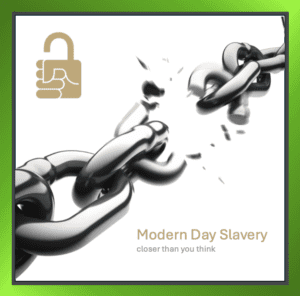Advancements and Challenges in Modern Slavery Policy for 2025
Modern slavery remains a serious crime and a profound violation of human rights, manifesting in forms such as slavery, servitude, forced labour, and human trafficking. These practices strip individuals of their liberty for exploitation.
Anti-Slavery International, founded by abolitionist William Wilberforce in 1839, has been leading the fight against this issue for over 180 years.
Today, millions globally, including children, are ensnared in slavery. Recent estimates suggest 40 million people are affected worldwide, with 1 in 4 being children and 71% being women and girls. In 2019, UK authorities identified over 10,000 potential victims. Exploitation often occurs in business operations and supply chains, obscuring victims and complicating identification.
Externally, jobs may seem normal, but victims often face control, having their passports seized and threatened with deportation or harm to their families. They may be forced into debt, making escape difficult, and in extreme cases, face violence.
Survivor Identification and Support
The UK Government has initiated plans to recruit 200 additional decision-makers at the Home Office to expedite decision-making and reduce backlogs in the National Referral Mechanism. The Border Security, Asylum and Immigration Bill, recently introduced, will repeal much of the Illegal Migration Act, which risked denying support to irregularly arriving victims, and overturn the Safety of Rwanda Act.
However, measures to exclude certain victims on ‘public order grounds’ remain, though they face criticism for contradicting human rights obligations.
The Government is committed to a “long-term reform of the modern slavery system” to ensure tailored support for victims. In 2025, we anticipate foundational reforms, including policy consultations and pilots like the Home Office’s devolved decision-making model for children affected by modern slavery.
Prevention Efforts
Investing in prevention is vital to reduce harm and economic costs. The Government’s Employment Rights Bill proposes a new Fair Work Agency to enforce labour standards, while a new homelessness strategy aims to reduce exploitation risks.
Cross-Government collaboration is essential for a unified response to modern slavery. The Scottish Government’s is refreshing Human Trafficking and Exploitation Strategy addressing these issues.
Modern Slavery in Supply Chains
Modern Slavery PEC research highlights public procurement’s potential in combating slavery. The UK Government’s ongoing public consultation and the forthcoming Procurement Act aim to enhance supply chain transparency and accountability.
The Home Office is improving transparency in supply chains under the Modern Slavery Act by refreshing business guidance and enhancing the online registry for modern slavery statements. However, research suggests primary legislation is necessary for more effective transparency measures.
Legal Enforcement and Criminal Justice
2025 presents challenges in legal enforcement, with delays in criminal cases and prison capacity issues. The Minister for Safeguarding prioritises increasing prosecutions for modern slavery offences, emphasising survivor support to aid prosecutions. Barriers to survivor compensation need addressing, with an open consultation on civil legal aid offering feedback opportunities.
Increased focus on child criminal exploitation, a modern slavery form, is expected. The Government’s commitment to a new criminal offence of child criminal exploitation raises complex issues, which will be explored in forthcoming reports. A new project in Northern Ireland aims to enhance understanding of this exploitation form.
Anti-Modern Slavery Policy
The Modern Slavery Act MSA 2015 covers slavery, servitude, forced labour, and human trafficking. Organisations must comply with the MSA’s principles and ensure transparency through due diligence.
- Slavery: Exercising ownership over a person.
- Servitude: Coercive imposition of service obligations.
- Forced Labour: Work exacted under threat, without voluntary offer.
- Human Trafficking: Facilitating travel for exploitation.
Organisations are urged to uphold these principles, encouraging transparency across their operations.
If you need assistance with anti-modern slavery policies, please get in touch with Tick HR, we are here to help.

